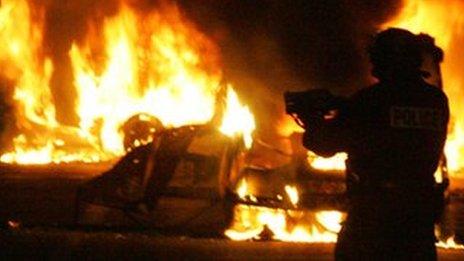Paris shooting: Why French government backed family so fast
- Published
Watch: What social media videos reveal about Paris teen's death
French President Emmanuel Macron came out quickly and strongly in support of the family of 17-year-old Nahel M, calling his shooting by police "inexplicable and inexcusable".
The teenager was shot in his car in the Paris region after failing to stop when ordered to by traffic police.
Video of the incident on social media shows an officer pointing a gun at the driver of a car. The officer then appears to fire at point-blank range as the driver tries to drive off.
Prime Minister Élisabeth Borne said the video of his killing contained "shocking images showing a police intervention manifestly in contravention of the rules".
And Interior Minister Gérald Darmanin said that if the "content of the video is confirmed, there is no way that the act which we see there can be justified."
It looks very much as if the government has made a coordinated effort to send out a message of appeasement and pacification.
The police unions are not happy.
In a statement the Alliance Police union said it was "hard to believe that the president, contrary to his past statements of support for the police… should so flout the separation of powers… as to condemn our colleagues before justice has had the chance to speak".
For police representatives, there is a clear duty for all sides to hold off from judgment until the full facts in the case have been elucidated. The presumption of innocence, they say, also applies to the police.
It is a principle that French governments normally are keen to uphold.
So why are they so quick to speak out now? There are two reasons.
The first is that what happened took place in the new era of social media and real-time filming. The images are stark, and the conclusion - police overreaction - is hard to avoid. The government could hardly ignore what the population in its large majority is saying.
And this is not an isolated incident. No-one disputes that refusing to stop at a traffic control is a serious offence and that it happens too frequently. But on 13 occasions last year, occupants of cars in such situations were shot dead by French police.
That strongly suggests something is wrong.
Nonetheless, good counsellors would surely still advise caution. We do not know what preceded the shooting, nor the content of the altercation. The officers will have their side to tell as well.
The second factor is fear. Fear that the disturbances of Tuesday night could only be a beginning, and that the long hot summer nights ahead are made for suburban riots.
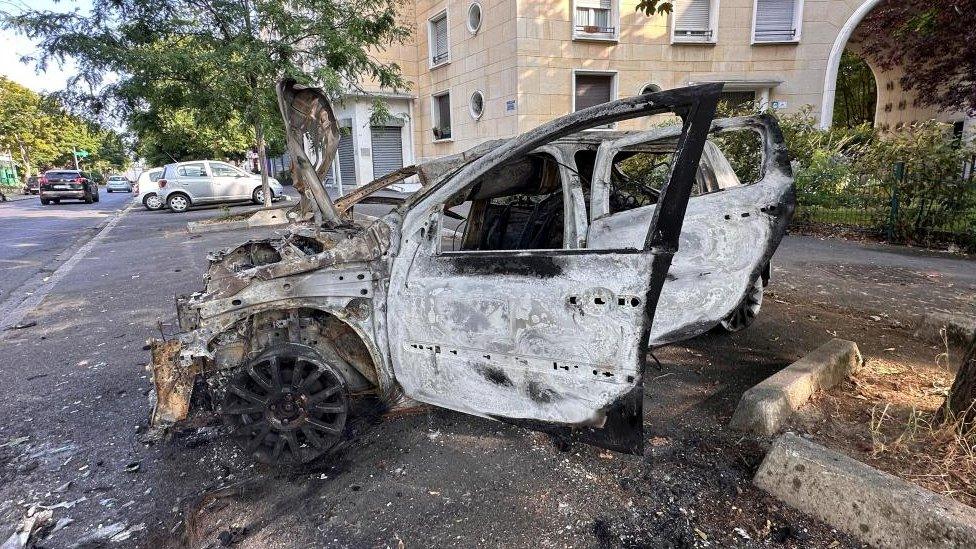
Several towns in the Paris region saw rioting on Tuesday night and police have been put on alert for more trouble
President Macron knows that words can calm - and words can also inflame.
In everyone's mind is the risk of repeating the weeks of riots of November 2005, external which followed a similar tragedy - the deaths of two teenagers seeking refuge in an electricity sub-station after being chased by police.
Back then an aggravating factor was the loathing felt in the banlieues (suburbs) towards the interior minister - and future president - Nicolas Sarkozy.
Mr Sarkozy had angered many in the high-immigration cités (estates) - and shocked the political left - by promising to clean out criminal elements with a Kärcher power-hose.
Just before the riots he had also responded to a rowdy reception committee in one banlieue by calling them racaille - riffraff.
Over the weeks that followed rioters would justify their burning of cars and public buildings by invoking the "lack of respect" extended to them by the minister in charge of public order.
The Macron presidency has already seen its fair share of anger on the streets, from the yellow-vest protests to the more recent turmoil over pension reforms.
The primary concern of the government today is to ensure that 2005 does not happen again. Words matter, and the president and ministers have chosen theirs carefully.
Related topics
- Published29 June 2023
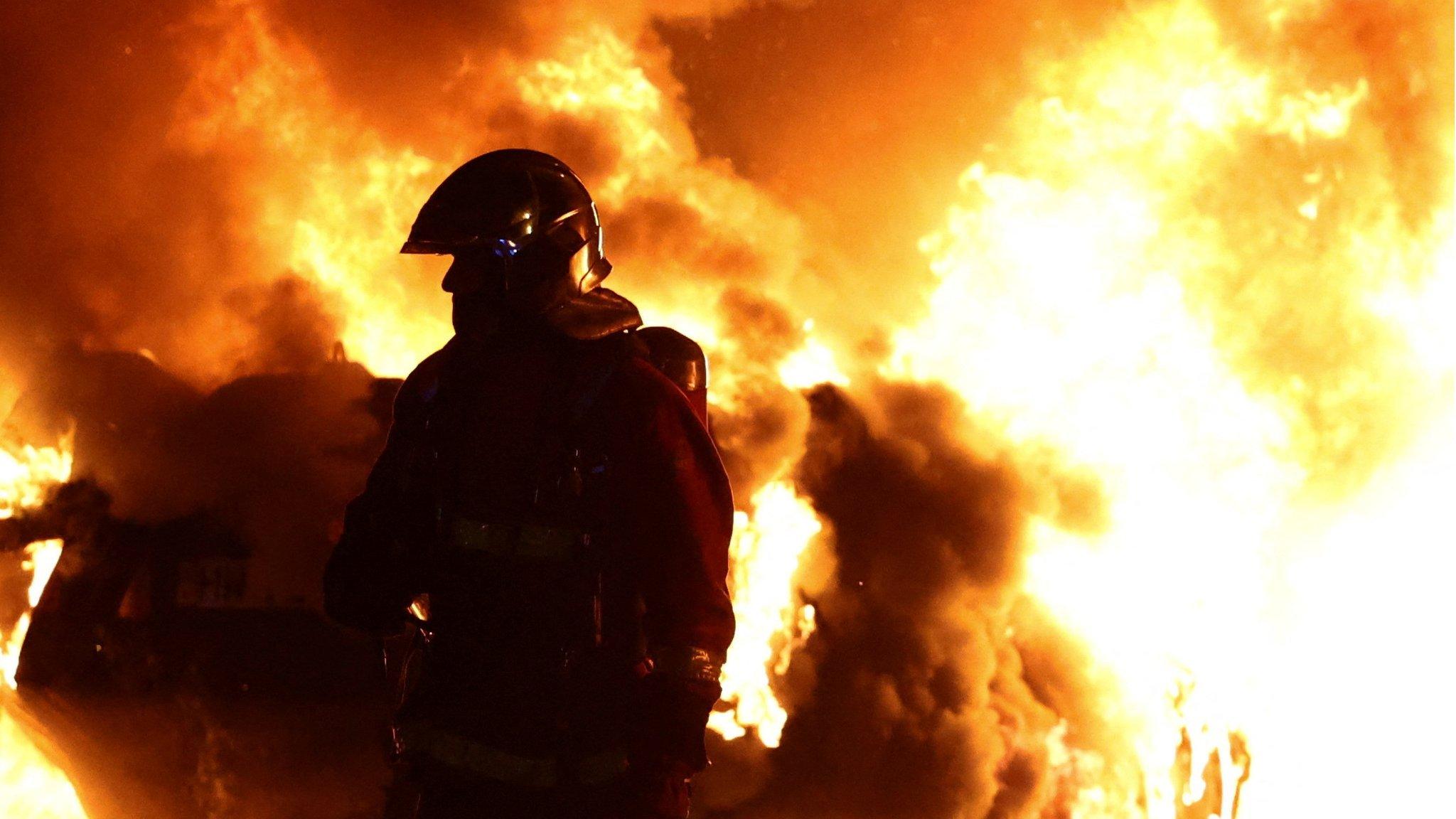
- Published28 June 2023
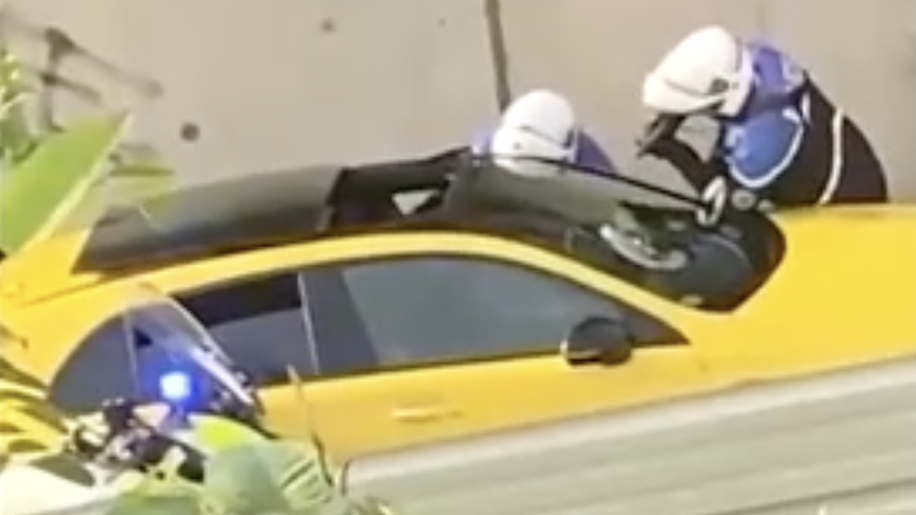
- Published8 June 2022
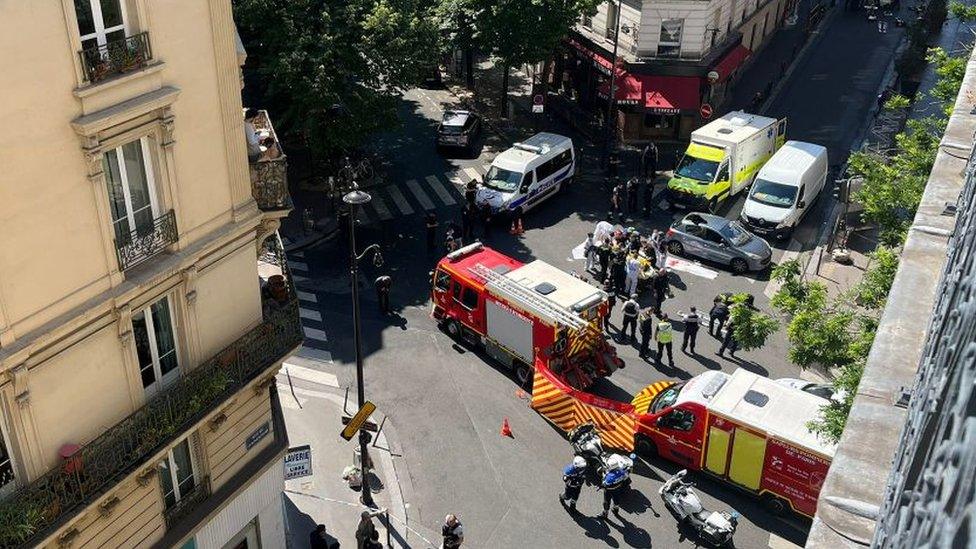
- Published20 September 2013
